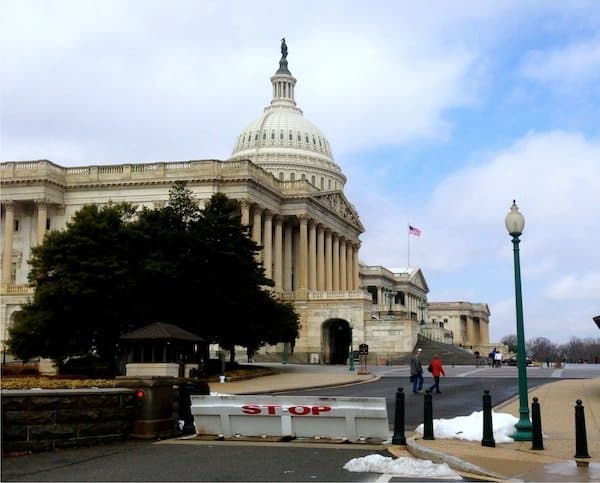Two researchers at The Foundation for Defense of Democracies (FDD) have produced a comprehensive report on Russia, Venezuela, Iran and China’s efforts to create or exploit alternative payment systems that would allow them to circumvent the US dollar as a means of enforcing American foreign policy.
According to the authors, for a more than a century, America’s might has been supported by the global supremacy of its dollar as the preferred means of denominating oil and other types of global commerce.
America’s enemies are now working hard to dodge that reality, Yaya J. Fanusie & Trevor Logan write:
“The primacy of the dollar has enabled U.S. policymakers to deploy tools of financial coercion and economic sanctions to promote U.S. national security interests without relying solely on diplomacy and military action. For decades, U.S. adversaries have been trying to evade and undermine this power, but there has been no way to conduct significant international commerce without moving through the pipes of the U.S.-led global financial system.1 Now, however, new pipelines are being built…Efforts are underway around the world to build new systems for transferring value that work outside of conventional banking infrastructure.”
Of particular interest to America’s main adversaries are blockchain and cryptocurrency systems, the writers say, and Iran, Venezuela, Russia, and China have all been engaging in active research and development regarding this type of automated ledger:
“U.S. adversaries see (the advent of cryptographic money systems) as an opportunity to reduce Washington’s ability to impose economic sanctions, which depend on intermediaries like traditional banks to monitor compliance.”
 So far, cryptocurrency networks are somewhat niche and serve far fewer users than regular banks. However, US adversaries are “prioritizing” their development:
So far, cryptocurrency networks are somewhat niche and serve far fewer users than regular banks. However, US adversaries are “prioritizing” their development:
“Blockchain sanctions resistance is a long-term strategy for U.S. adversaries…The target timeline may be two to three decades, but these actors are developing the building blocks now. They envision a world in which cryptocurrency technology helps them eclipse U.S. financial power, much the way that the dollar once eclipsed the British pound.”
Several are also doing so while depriving their own citizens of access:
“It is also notable that China, Iran, and Venezuela, in particular, have restricted their citizens’ access to existing cryptocurrencies as they explore developing a state-backed digital currency.”
The writers detail the current state of “alternate pipeline” development in each of the four countries described.
In short:
- “Venezuela’s national cryptocurrency experiment under the Maduro regime has been a debacle. The Petro coin was more of a propaganda effort than a technical or financial accomplishment…”
- “Russian financial institutions are launching multiple blockchain technology projects to float corporate bonds and hold digital assets in new depository platforms. A crypto-ruble is unlikely in the short term given legislative and regulatory hurdles, but the Kremlin is looking to develop a digital currency that could be used for trade with regional partners and like-minded governments outside the SWIFT financial messaging system
- “Iran’s central bank is highly motivated to develop an alternative to SWIFT, especially after Washington withdrew from the Iran nuclear deal in 2018. Tehran is investing in blockchain pilot projects and promoting blockchain technology education at the university level. Russia has been a strong ally in the plan for blockchain resistance…”
- “China is less threatened by U.S. sanctions than other adversaries, but displacing U.S. influence in the global financial system is a national priority. …China’s engagement in blockchain payment systems may be the biggest variable in sanctions resistance efforts. China’s buy-in, if it involved moving its trade onto a blockchain platform outside the conventional system, would be a game-changer.”
The writers also offer several, “Scenarios that would make blockchain sanctions resistance a larger threat,” including:
- “US adversaries unite on a particular alternative payment system.”
- “An independent cryptocurrency such as Bitcoin gains wide adoption in commerce and becomes more relevant to the global financial system. Then, a U.S. adversary begins to build significant reserves in the cryptocurrency.”
- “Adversary makes progress in developing digital currency wallet infrastructure. The nation develops a state-based digital wallet system where citizens and foreigners can hold and trade the digital currency and use it for transactions with domestic companies.”
A cognizant approach is warranted in Washington, Fanusie and Logan say:
“Washington, therefore, must understand the benefits and threats posed by new financial technologies, maintain the integrity of global finance, and cultivate the expertise and influence to lead in what is becoming an international crypto race.”
…and it is not too late:
“The U.S. has the opportunity to harmonize digital currency technology with the law-based financial order if it stays ahead of its adversaries’ attempts at building the financial system of the future.”



